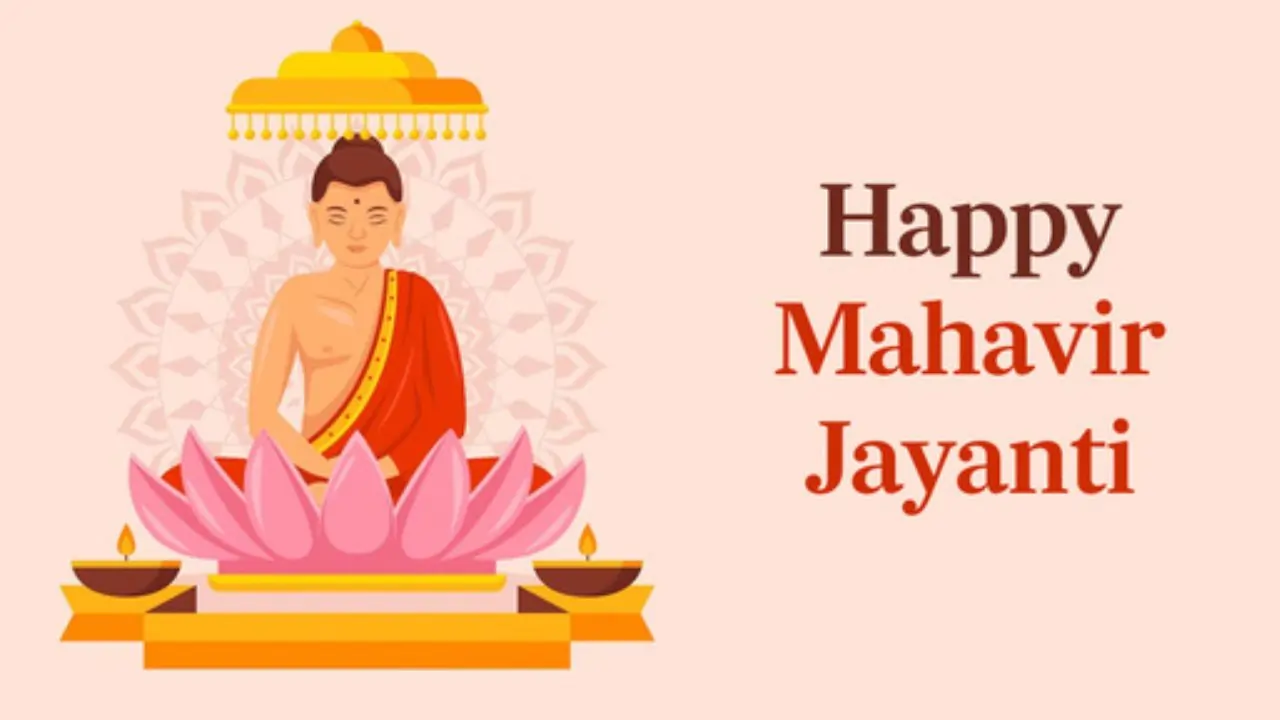
Karwa Chauth 2024 fasting tips for pregnant women: Do not skip your medication, what to do if there is delay in moonrise
5 months ago | 5 Views
Karwa Chauth, a significant festival for married Hindu women, involves a day-long fast but for pregnant women, fasting can pose unique challenges due to increased nutritional demands and the delicate balance of hormones during pregnancy. Pregnancy gives a new identity to a woman but it also comes with some dos and don’ts rules especially during festive fasting as a woman's body goes through several alterations in chemistry and functions hence, health experts insist that one should not fast.
In an interview with HT Lifestyle, Dr Varini N, Senior Consultant - Obstetrician and Gynaecologist at Milann Fertility Center in Bengaluru, shared, “During this phase, both the woman and the baby need a balanced diet and proper hydration. Woman with diabetes or gestational diabetes there is a need to keep the sugar level intact. Therefore, keep a few things in mind when a woman is pregnant and it’s a fasting day.” She advised -
- The first three trimesters are important for nutrition, and every pregnancy differs, so your nutritional habits, fetus health, and blood sugar levels will decide whether you can fast. Therefore, first and foremost, consult your physician, since they know your body function well.
- Avoid dehydration, as it can lead to health complications like nausea, vomiting, and gastric problems. Also, avoid diuretic drinks like coffee or tea, as they reduce the body’s water content.
- Take sufficient rest instead of exhausting yourself which can lead to fatigue and stress.
- If you have decided to fast, then instead of going for complete fasting, you prefer having some small nutritious foods and liquids like coconut water, dry fruits, etc.
- Avoid highly processed sugar as that could spike your blood sugar levels followed by energy clashes, prefer nutritious-dense food during sargi. Avoid hunger pangs and provide sustained energy, which will slowly release energy.
- Pregnant women are susceptible to UTIs, so if you see dark urine, nausea, or vomiting contact your doctor since dehydration can lead to these all. Also have an eye on symptoms like shaking, confusion, or sweating as these could be signs of hypoglycemia.
- Check your weight, if you are losing weight then contact your doctor.
- Do not skip your medication, if prescribed to you.
- If there is a delay in moonrise, do not extend your fasting for a longer period.
- Break your fasting immediately, if you find something irregular with your body.
- Avoid heavy activities during fasting days when you are pregnant.
- Avoid overindulgence while opening your fast.
This particular phase is very important and crucial so, you need to be careful about what you eat, your lifestyle, etc. It becomes very important to take advice from your physician regarding your regular routines.

Bringing her expertise to the same, Dr Rajeshwari Panda, Head of the Dietetics Department at Medicover Hospital in Kharghar Navi Mumbai, added to the list of tips to help you navigate Karwa Chauth fasting safely and comfortably -
1. Pre-fast planning:
- Consult Your Doctor: Before fasting, discuss your plans with your healthcare provider. They can assess your overall health, adjust your prenatal vitamins as needed, and provide personalized guidance.
- Nutrient-Dense Meals: Ensure you have a well-balanced meal the night before the fast, focusing on complex carbohydrates, lean proteins, healthy fats, and plenty of fruits and vegetables. This will provide sustained energy and help stabilize your blood sugar levels.
- Hydration: Stay well-hydrated throughout the pre-fast period to prevent dehydration, which can be particularly harmful during pregnancy.
2. During the fast:
- Monitor Blood Sugar: Check your blood sugar regularly to ensure it remains within a healthy range. If your blood sugar drops significantly, consume a carbohydrate-rich drink or snack.
- Avoid Excessive Physical Activity: While light exercise can help manage stress, avoid strenuous activities that could lead to fatigue or dehydration.
- Mindful Eating: When breaking the fast, start with a small, light meal and gradually increase your intake. Focus on nutrient-dense foods and avoid excessive sugar intake.
3. Post-fast nutrition:
- Gradual Reintroduction: Avoid overeating immediately after breaking the fast. Gradually reintroduce foods to your diet to prevent sudden spikes in blood sugar levels.
- Nutrient-Dense Meals: Prioritise meals rich in fiber, protein, and healthy fats. These will help stabilize your blood sugar levels and provide sustained energy.
- Monitor Blood Sugar: Continue to monitor your blood sugar closely for a few days after breaking the fast to ensure it returns to normal levels.
4. Additional tips:
- Stress Management: Practice stress management techniques like meditation, deep breathing, or Yoga to help regulate your blood sugar and overall well-being.
- Emergency Kit: Keep a glucose kit readily available in case of hypoglycemia.
- Inform Loved Ones: Inform your family and friends about your pregnancy and fasting plans to ensure they can provide support and assistance if needed.
Remember, fasting while pregnant requires careful planning and monitoring. By following these tips and working closely with your healthcare provider, you can safely and comfortably observe Karwa Chauth while prioritising the health and well-being of both you and your baby.

Given that fasting holds immense importance in Indian tradition and Karwa Chauth is an annual fasting tradition celebrated by the wives for better health and longevity of their husbands, Dt Arti Singh, Consultant - Nutrition and Dietitian at Motherhood Hospitals in Kharghar, Mumbai, sahred, “During Karwa Chauth married women tend to fast for the entire day even without drinking any fluid. This fast is itself considered difficult for women with healthy physical well-being. In this case, fasting while pregnant can pose several threats to them and the developing fetus. Pregnant women should be careful when fasting during Karwa Chauth.”
Talking about tips for pregnant women for Karwa Chauth fasting, she recommended -
- Consult Your Doctor: The key step is to consult your doctor before deciding to fast. Your doctor may assess the current status of your health, pregnancy month, and any underlying risks associated with fasting. Fasting for a longer duration without following safety measures can be harmful to the growth and development of the baby.
- Stay Hydrated: Being well-hydrated is a key to surviving Karwa Chauth fast especially when you are pregnant. During the eating window that is large, focus more on drinking plenty of fluids like water, coconut water, or juice to maintain your hydration levels. Ensure that you add hydrating foods like watermelon, oranges, and cucumber to your large meal.
- Opt for Nutritious Foods: During the pre-drawn meals (sargi) try eating a well-balanced and nutrient-rich meal. Incorporating whole grains like oats and whole wheat chapatis can help maintain your energy levels throughout the day. Foods like paneer, yogurt and lentils are a good source of protein that supports the development of the fetus.
- Break the Fast Wisely: It’s quite common to get overexcited about the food when it comes to breaking your fast after the moonrise. Do not go overboard and start with light foods that are easy to digest. This can include food options like fruits, soups, khichdi, and stir-fried vegetables. Eating healthy and balanced meals that contain essential nutrients like vitamins, minerals, protein, carbs, and healthy foods can help prevent your digestive system from being overwhelmed after an extended period of fasting.
- Listen to Your Body: Make sure you pay close attention to how your body feels throughout the day during the Karwa Chauth fasting. If at some point you start to experience extreme symptoms like nausea, fatigue, dizziness, vomiting, and low blood pressure then do not hesitate to break your fast. Remember during pregnancy you are not only responsible for your health but also for the baby.
- Avoid High-Calorie Foods: Refrain from consuming excessive sweets, fried foods, or caffeinated beverages.
- Monitor Fetal Movements: Be mindful of your baby's movements throughout the day. Any significant changes should be reported to your doctor.
- Consider Gestational Diabetes: If you have gestational diabetes, fasting might not be advisable. Consult your doctor for guidance on managing your blood sugar levels.
- Prioritise a Balanced Diet: A well-balanced pregnancy diet is essential. Choose a variety of healthy foods and break your fast with nutritious options like fruit juice or other healthy beverages.
Remember, your health and your baby's well-being are paramount. If you have any concerns or doubts about fasting during pregnancy, it is always best to consult with your healthcare provider.
Read Also: Healthiest cheese: 8 guilt-free varieties to satisfy your tastebuds





















